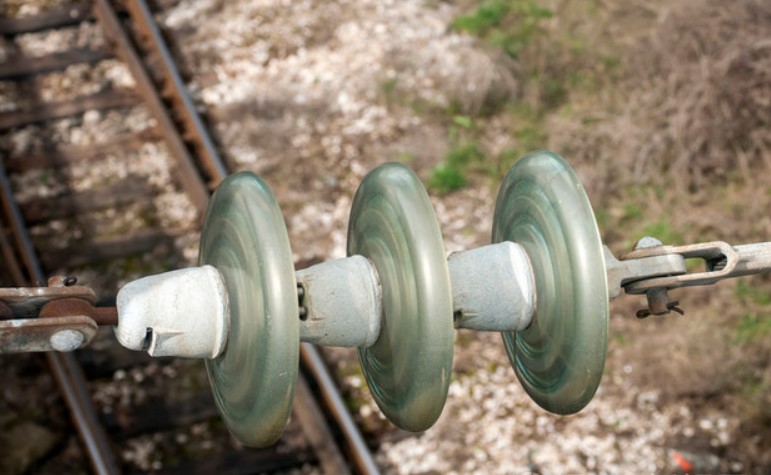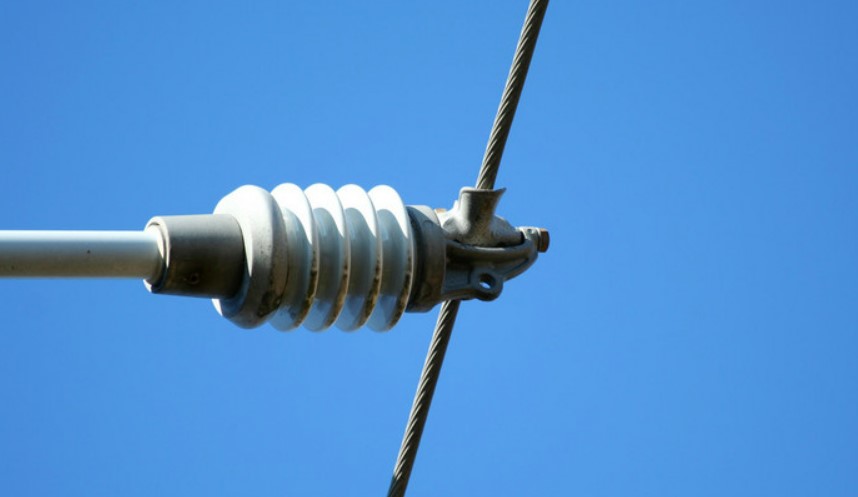Insulators are essential in high-voltage power systems. They prevent current leakage and ensure the safety of electrical equipment. The choice of insulator material significantly affects performance and reliability. This article will explore the various materials used for insulators and their roles in high-voltage power systems.
1. The Importance of Insulators
Insulators serve critical functions in electrical systems. They maintain the integrity of power lines. Insulators also support conductors and keep them separated from the ground and other conductors. This separation is vital for safety and efficiency. The materials used in insulators play a significant role in their effectiveness.
2. Common Insulator Materials
Different materials are used to make insulators. Each material has unique properties that contribute to its performance.
Ceramic Insulators
Ceramic insulators are commonly used in high-voltage systems. They are made from materials like porcelain. Ceramic insulators have excellent electrical insulation properties. They can withstand high temperatures and resist corrosion. Their smooth surfaces help repel dirt and moisture.
Polymer Insulators
Polymer insulators are made from synthetic resins. These materials include epoxy and silicone. Polymer insulators are lightweight and easy to install. They have good electrical and mechanical properties. They also resist aging and environmental damage. This makes them suitable for various applications.
Glass Insulators
Glass insulators have a long history in the industry. They are transparent and allow for easy inspection. Glass insulators provide excellent insulation and are resistant to corrosion. They are durable but heavier than ceramic and polymer insulators. This weight can be a disadvantage in some applications.
Composite Insulators
Composite insulators combine different materials. They often use a core of fiberglass with an outer layer of silicone rubber. This design offers excellent electrical properties and mechanical strength. Composite insulators are particularly effective in harsh environments. They can withstand contamination and extreme weather conditions.
3. Preventing Current Leakage
One of the primary functions of insulators is to prevent current leakage. Insulators separate conductors from each other and the ground. This separation is crucial for preventing short circuits and electrical accidents.
High Electrical Strength
The electrical strength of the insulator material is vital. The higher the electrical strength, the less likely current will leak. Ceramic and glass materials typically have high electrical strength. Polymer insulators also provide adequate strength but may vary depending on the specific material used.
Leakage Current Reduction
Leakage current can cause significant energy losses. It can also lead to equipment damage and safety hazards. Insulators designed with high-quality materials minimize leakage current. This ensures more efficient power transmission.
4. Environmental Resistance
High-voltage power systems face various environmental challenges. Insulators must withstand weather conditions and contamination. The choice of material affects how well insulators can resist these challenges.
Resistance to Contamination
Contaminants such as dust, salt, and pollution can affect insulator performance. Ceramic and glass insulators offer good resistance to contamination. Their smooth surfaces make it easier to shed dirt and debris.
Polymer Insulator Advantages
Polymer insulators have self-cleaning properties. Rainwater can wash away contaminants. This feature makes them suitable for areas with high pollution levels. Composite insulators also perform well in contaminated environments.
5. Mechanical Strength
Insulators must endure mechanical stresses. These stresses come from wind, ice, and other external forces. The mechanical strength of the material is critical to their performance.
Durability of Ceramic Insulators
Ceramic insulators are known for their durability. They can withstand high mechanical loads. However, they can be brittle under certain conditions. Care must be taken during installation and handling.
Composite Insulator Strength
Composite insulators excel in mechanical strength. Their design allows them to absorb shocks effectively. They are less likely to break under stress compared to ceramic insulators. This makes them a popular choice for challenging environments.
6. Temperature Resistance
Temperature fluctuations can impact insulator performance. Different materials respond differently to temperature changes.
Thermal Stability of Ceramic Insulators
Ceramic insulators perform well in high-temperature environments. They can operate at temperatures exceeding 200 degrees Celsius. This makes them suitable for regions with extreme heat.
Polymer Insulator Flexibility
Polymer insulators offer flexibility in various temperature conditions. They maintain good insulation properties at low temperatures. This is especially important in colder climates. They do not become brittle, which ensures continued performance.
7. Installation and Maintenance
The ease of installation and maintenance is crucial for insulators. Different materials require different handling and care.
Lightweight Polymer Insulators
Polymer insulators are lightweight. This makes them easier to transport and install. Their installation can be done more quickly, reducing labor costs. This advantage is significant for remote or difficult-to-access locations.
Maintenance of Glass and Ceramic Insulators
Glass and ceramic insulators require regular inspection and cleaning. This ensures their continued effectiveness. Their heavier weight may make installation more challenging in some situations.
8. Conclusion
The materials used in insulators have a significant impact on high-voltage power systems. Each material offers unique advantages and disadvantages. Ceramic insulators provide durability and high electrical strength. Polymer insulators offer lightweight and self-cleaning properties. Glass insulators allow for easy inspection. Composite insulators combine the strengths of different materials.
Selecting the right insulator material is crucial for safety and efficiency. The choice will depend on specific application requirements. As technology advances, new materials will emerge. These innovations will further enhance the performance of insulators in high-voltage systems.
Investing in the right insulator materials will lead to better performance and reliability. This is essential for the safe operation of electrical systems. Proper material selection can help minimize energy losses and reduce maintenance costs. In conclusion, insulators play a vital role in ensuring the efficiency and safety of high-voltage power systems.



